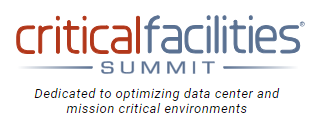
The Critical Facilities Summit features education sessions, a benchmarking workshop, tours, learning labs and the expo. Registration fees range from $299 for federal end users to $599 for other FM professionals. The expo is free and never overlaps with education hours.
Blocks of rooms are available at a special rate. Book by Sept. 21 to secure the rate.
CFS offers a deep session line-up, organized by track so you can make your own tailored educational experience. Tracks include: Cloud/Colo, Education/University, Enterprise Data Center, Labs and Critical environments and Hospitals and Healthcare. Participants can earn up to 13 CEUS.
New seminars are being added daily, such as how to diversify your critical facilities team. See the complete list.
Some of the courses for healthcare FMs include:
SOS THE NEW THREAT ENVIRONMENT FOR CRITICAL FACILITIES
Start Time: 10/14/2018 3:00:00 PM
End Time: 10/14/2018 4:00:00 PM
The 6th annual Summit opens with a frank discussion of the dangers facing all critical facilities, from cybersecurity to terrorism to workplace violence to natural disasters. Our panel will share their experiences in preparing for and responding to disruptions in critical environments, and detail the preparedness levels necessary to ensure the safe operation of always-on buildings. Attendees will come away with a clear understanding of the specific risks facing their own organizations as well as strategies to mitigate hazards and offer peace of mind in a less than peaceful world.
M1C EMERGENCY RESPONSE MANAGEMENT IN CRITICAL FACILITIES
Start Time: 10/15/2018 10:00:00 AM
End Time: 10/15/2018 11:00:00 AM
Which of your organization’s functions need to be restored first in the event of an emergency? Which facility systems support those critical areas? Any system deficiencies? What contingency plans are in place in the event of a catastrophe—and how does the facility program support them? An Emergency Response Management (ERM) Program is frequently lacking in a critical facility organization, and while there may be a company-wide business continuity plan, the typical data center, hospital and/or lab does not maintain an ERM program that protects the organization. This session outlines how to assess and set up a ERM program, including emergency operating procedures, staff training, and appropriate response levels to protect a critical facility’s triple bottom line.
M2D KEEPING THE UPS UNINTERRUPTIBLE
Start Time: 10/15/2018 2:15:00 PM
End Time: 10/15/2018 3:15:00 PM
Uninterruptible Power Supply systems offer critical facility managers plenty of bang for the buck. But in addition to the “bang” of power supply, ensuring the system’s uninterruptible aspect is vital to protecting data center components and equipment. This session begins with an examination of OEM vs. 3rd party independent service and the features and limitations of each options. From there, the presentation goes on to evaluate battery replacement options (runtime, lifetime, reliability, size, weight risk and cost) and UPS replacement versus maintaining to expected end of life.
TGS DIVERSITY IN CRITICAL FACILITIES
Start Time: 10/16/2018 8:30:00 AM
End Time: 10/16/2018 9:30:00 AM
The competition for talent for data centers and other types of critical facilities is intense. And as the Baby Boom generation ages out of the workforce, it is essential for facility executives to look to a more diverse talent pool to find the skills, energy, and creativity needed to support critical operations. The panel will examine obstacles to diversity in critical facilities, describe their own paths into the field, and discuss steps facility executives can take to draw from a more diverse talent pool.
T1B 3-PHASE POWER FOR DUMMIES
Start Time: 10/16/2018 10:00:00 AM
End Time: 10/16/2018 11:00:00 AM
For many data center facility engineers and professionals, 3-phase power can be a scary subject, prompted by a lack of understanding of how to calculate even simple 3-phase power planning for IT equipment. This presentation will provide a simplified view of 3-phase power for data center personnel regardless of educational background and allow for more productive conversations by taking the fear out of a commonly unsettling topic.
T2C CRITICAL FACILITY DISASTER RECOVERY
Start Time: 10/16/2018 2:15:00 PM
End Time: 10/16/2018 3:15:00 PM
Learning Objectives:
1. Identify differences between emergency management, business continuance, or disaster recovery plan
2. Understand the steps to creating a successful recovery plan
3. Learn how to prioritize the recovery of an organization’s services
4. Understand what is required to recover those services including facilities, IT, financial and resources
T2D EMERGENCY POWER IN MEDICAL SETTINGS
Start Time: 10/16/2018 2:15:00 PM
End Time: 10/16/2018 3:15:00 PM
Hospital facility managers face unique challenges and compliance requirements when it comes to managing their emergency power supply systems. Loss of power can pose significant risks to patient safety, but any facility infrastructure investment to bolster power reliability must be balanced against patient care-focused expenditures. This session will explore current solutions to recordkeeping and reporting, the role of wireless and smarter control panels and whether or not your organization should own the emergency power system. Attendees will review new options to ensure the emergency power system addresses both compliance and financial considerations.
T3A PREVENTIVE MAINTENANCE STRATEGIES FOR CRITICAL FACILITIES
Start Time: 10/16/2018 3:30:00 PM
End Time: 10/16/2018 4:30:00 PM
The reasons for not committing to preventive maintenance are many: There’s no good way to accommodate down time, or the emphasis should be on responding to failure versus scheduling inspections, or there’s not enough time to dedicate to PM. The result: Many mission critical facilities become bogged down in reactive maintenance mode, which can be costly to say the least – and disastrous at worst. This session will help assess where your organization’s maintenance approach currently stands and will provide a guide for transitioning to a preventive maintenance approach that can — and will — work in a critical environment. Learn how to gain buy-in from both staff and upper management on a PM approach by demonstrating its value and highlighting bottom-line results.
